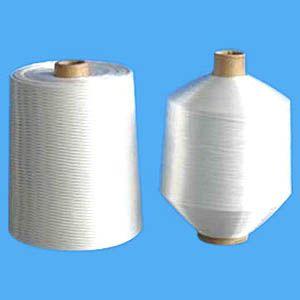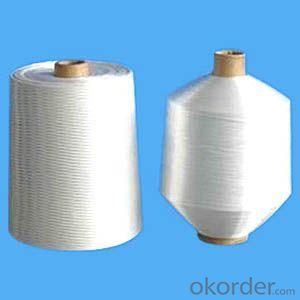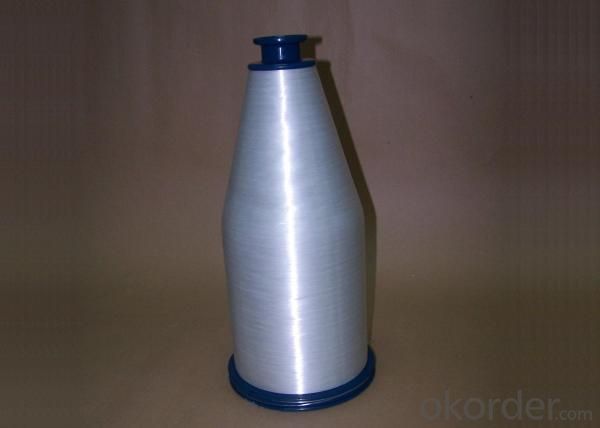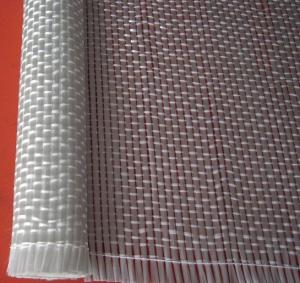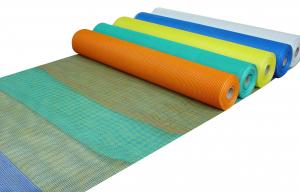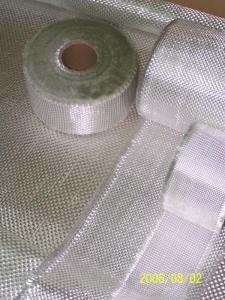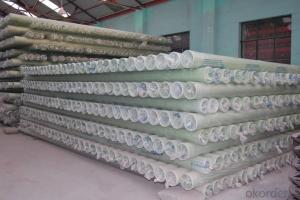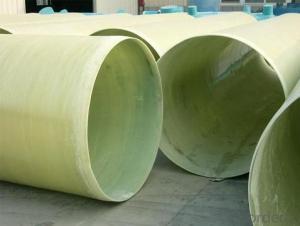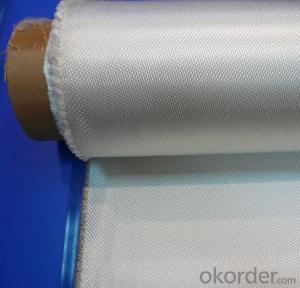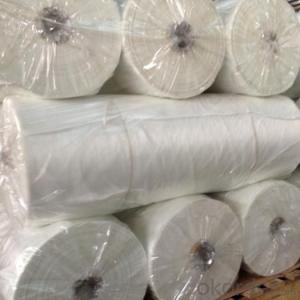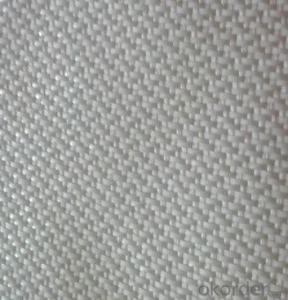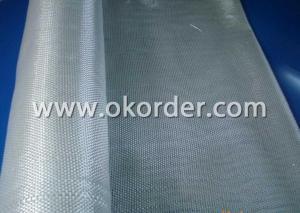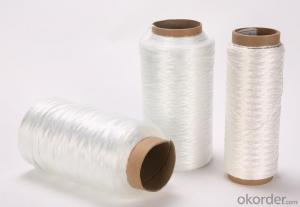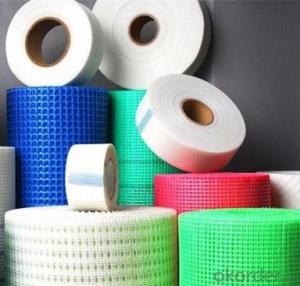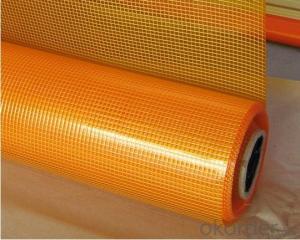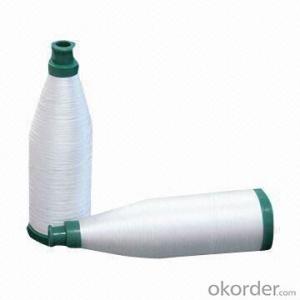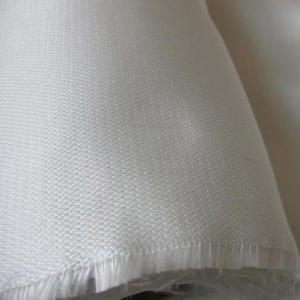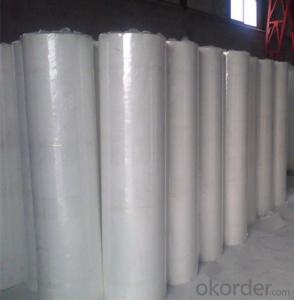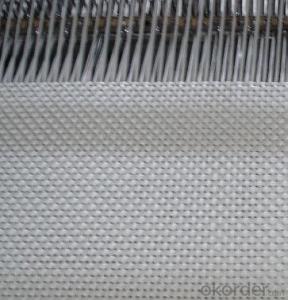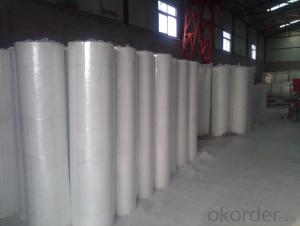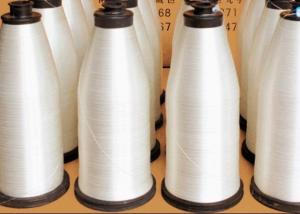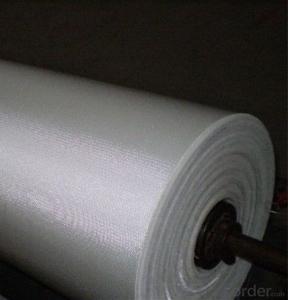Fiberglass Yarn - High Quality Fiberglass Yarn
- Loading Port:
- China Main Port
- Payment Terms:
- TT or L/C
- Min Order Qty:
- 1Ton kg
- Supply Capability:
- 100000Kg/Month kg/month
OKorder Service Pledge
OKorder Financial Service
You Might Also Like
Packaging & Delivery of Fiberglass Yarn
Specifications of Fiberglass Yarn
Glass fiber filament yarn
corrosion resistant, heat resistance
little moisture absorption
low thermal conductivity
Fiberglass yarn is made from 4-9um fiberglass filameters which are the gathered and twisted into one finished yarn. It is widely used in productions of fabric as finished well as electrical wrapping materials, engineering materials, textured yarn, woven electronic grade fabric and so on.
Packaging & Delivery of of Fiberglass Yarn
Packaging Detail: carton and pallet
Delivery Detail: within 15days after order placed
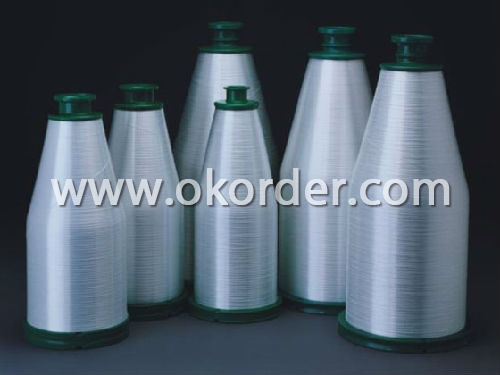
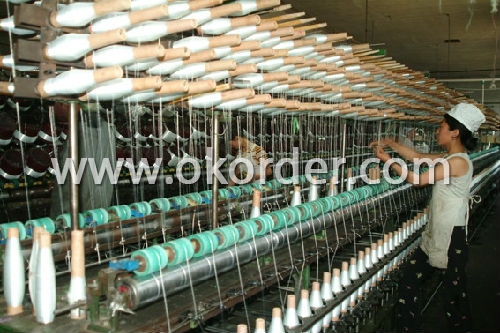
- Q: Is fiberglass yarn resistant to acids or alkalis?
- Yes, fiberglass yarn is generally resistant to both acids and alkalis.
- Q: How does the weight of fiberglass yarn compare to other materials?
- Fiberglass yarn tends to have a lighter weight in comparison to numerous other materials. It is derived from delicate glass filaments that are twisted into yarn, resulting in a material that is both lightweight and pliable. In contrast to materials like cotton or wool, fiberglass yarn is notably lighter. Nevertheless, when juxtaposed with synthetic materials such as nylon or polyester, the weight of fiberglass yarn might be marginally heavier. In general, fiberglass yarn has a relatively low weight, which has contributed to its popularity in diverse applications like insulation, composites, and textiles.
- Q: Is fiberglass yarn resistant to fungus?
- Yes, fiberglass yarn is generally resistant to fungus.
- Q: How does the dimensional stability of fiberglass yarn compare to other materials?
- The dimensional stability of fiberglass yarn is generally higher compared to other materials.
- Q: How does fiberglass yarn perform in terms of moisture absorption?
- Fiberglass yarn boasts an impressive ability to resist moisture absorption. Unlike natural fibers like cotton or wool, fiberglass yarn does not easily soak up water or moisture from its surroundings. This particular characteristic renders it an ideal material for crucial applications where moisture resistance is paramount, such as insulation, electrical components, and outdoor fabrics. The non-absorbent quality of fiberglass yarn enables it to retain its strength and structural integrity even when exposed to damp or wet conditions. Moreover, the moisture resistance of fiberglass yarn also reduces the likelihood of mold, mildew, and rot, thereby enhancing its longevity and durability. All in all, fiberglass yarn excels in terms of moisture absorption, making it the preferred choice for a wide range of industries and applications.
- Q: Is fiberglass yarn resistant to mechanical damage?
- Yes, fiberglass yarn is known for its high resistance to mechanical damage. Fiberglass is a strong and durable material that is commonly used in applications where mechanical strength is crucial. It has excellent resistance to abrasion, impact, and tearing, making it highly resistant to mechanical damage. This makes fiberglass yarn suitable for various industries and applications, such as reinforcements in composites, insulation materials, textiles, and reinforcement in automotive and aerospace industries. Additionally, fiberglass yarn also exhibits good dimensional stability, even under extreme conditions, further enhancing its resistance to mechanical damage.
- Q: Can fiberglass yarn be used for making handbags?
- Handbags can indeed be made using fiberglass yarn. This type of yarn is renowned for its robustness and longevity, thus making it an excellent choice for handbags that necessitate a strong framework. Moreover, its velvety texture can bestow a refined and sophisticated look upon the handbag. Furthermore, fiberglass yarn boasts resistance against heat, chemicals, and moisture, thereby rendering it suitable for diverse environmental circumstances. Nonetheless, it is crucial to exercise care when handling fiberglass yarn due to the potential for skin irritation and the challenges posed by its stiffness during the crafting process.
- Q: Is fiberglass yarn resistant to impact or shock?
- Fiberglass yarn is generally not resistant to impact or shock. While it is known for its strength and durability, it is more susceptible to breaking or shattering upon impact compared to materials like steel or carbon fiber. However, fiberglass can still provide some level of resistance depending on the specific application and the thickness or density of the yarn. It is often used in composite materials or reinforced structures to enhance their overall strength and stiffness, but additional measures may be required to improve impact or shock resistance.
- Q: Can fiberglass yarn be used in insulation boards?
- Yes, fiberglass yarn can be used in insulation boards. Fiberglass yarn is known for its excellent thermal insulation properties, making it an ideal material for insulation applications. It is often used in the production of insulation boards to provide effective heat resistance and reduce energy loss. The fiberglass yarn is typically woven or knitted into a fabric and then applied as a layer within the insulation board, enhancing its insulation capabilities. Additionally, fiberglass yarn is lightweight, durable, and resistant to moisture and fire, making it a popular choice for insulation materials.
- Q: Is fiberglass yarn suitable for outdoor use?
- Yes, fiberglass yarn is suitable for outdoor use. Fiberglass is known for its durability and resistance to various weather conditions, making it a popular choice for outdoor applications. It is highly resistant to moisture, UV rays, and extreme temperatures, which allows it to maintain its strength and performance over time. Additionally, fiberglass yarn is lightweight and can be easily woven into fabrics or used for reinforcement in composite materials, making it versatile for a wide range of outdoor products such as awnings, tents, outdoor furniture, and even boat or aircraft components. Its ability to withstand harsh outdoor environments and its long-lasting qualities make fiberglass yarn a reliable option for outdoor use.
1. Manufacturer Overview
| Location | Chongqing, China |
| Year Established | 1971 |
| Annual Output Value | Above US$ 50 Million |
| Main Markets | North America, Eastern Europe, Southeast Asia, Mid East, Eastern Asia |
| Company Certifications | ISO9001 |
2. Manufacturer Certificates
| a) Certification Name | |
| Range | |
| Reference | |
| Validity Period |
3. Manufacturer Capability
| a) Trade Capacity | |
| Nearest Port | Chongqing |
| Export Percentage | 40%-50% |
| No.of Employees in Trade Department | 21-50 People |
| Language Spoken: | English |
| b) Factory Information | |
| Factory Size: | Above 2000,000 square meters |
| No. of Production Lines | Above 4 |
| Contract Manufacturing | |
| Product Price Range | Average |
Send your message to us
Fiberglass Yarn - High Quality Fiberglass Yarn
- Loading Port:
- China Main Port
- Payment Terms:
- TT or L/C
- Min Order Qty:
- 1Ton kg
- Supply Capability:
- 100000Kg/Month kg/month
OKorder Service Pledge
OKorder Financial Service
Similar products
Hot products
Hot Searches
Related keywords
